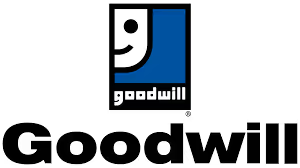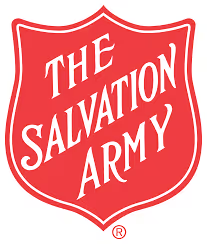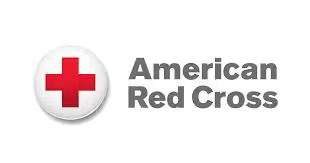






5-Star Valuation Services, Loved by Hundreds
Frequently Asked
Questions
No Frequently Asked Questions Found.
The appraisal process involves a comprehensive evaluation of various types of property, including real estate, artwork, collectibles, and specialized equipment. A qualified, independent appraiser conducts a meticulous examination that captures the item's precise market value, considering factors such as condition, age, and current market trends.
The core purpose of this appraisal is to create a transparent, credible record that meets stringent IRS guidelines. Donors must obtain a detailed report that includes a comprehensive property description, precise valuation methodology, and the specific date of valuation. The appraiser's professional certification and signature validate the document's integrity and accuracy.
Precision is paramount in this process. Inaccurate or incomplete appraisals can trigger potential audits, penalties, or outright denial of tax deductions. By adhering to IRS requirements, donors can confidently document their charitable contributions while maintaining full compliance with tax regulations.
Ultimately, an IRS Form 8283 appraisal serves as a critical bridge between charitable giving and tax reporting, providing a rigorous, objective assessment that protects both the donor's interests and the integrity of the tax system.
The process is meticulously structured, involving multiple critical steps that ensure an accurate and reliable valuation. Professional appraisers conduct an exhaustive examination that begins with thorough item identification, creating a detailed inventory complete with comprehensive descriptions and photographic documentation. Each item undergoes careful condition assessment, with experts evaluating factors like wear, maintenance history, aesthetic quality, and overall preservation.
Market research forms a crucial component of the appraisal, where appraisers leverage extensive industry knowledge and comparative data to establish fair market value. They analyze recent sales of comparable items, consult auction records, and apply specialized valuation methodologies that may include replacement cost analysis, sales comparison approaches, and assessments of historical significance.
The ultimate objective of a Household Goods appraisal extends far beyond simple monetary quantification. It provides critical insights that support important life decisions, ranging from insurance coverage and estate planning to potential resale and asset distribution. The resulting comprehensive report serves as an authoritative document that can be utilized in various legal, financial, and personal contexts, offering clarity and substantiated valuation of personal property.
Photographic documentation serves as the primary mechanism for online appraisals. Clients are requested to capture high-resolution images of items from multiple angles, enabling appraisers to carefully examine condition, craftsmanship, distinctive features, and potential signs of wear or age. These visual records form the foundation of the assessment process.
Supplementary information plays a critical role in refining the appraisal's accuracy. Appraisers often request supporting documentation such as original purchase receipts, provenance records, previous appraisal histories, and detailed written descriptions. This contextual information helps professionals contextualize an item's potential market and intrinsic value.
Video conferencing technologies have further enhanced online appraisal capabilities, allowing real-time interactive assessments. Through platforms like Zoom or Google Meet, appraisers can conduct live consultations, asking targeted questions and requesting immediate item demonstrations. This approach enables nuanced examination and instant clarification of specific details that might be less apparent in static photographs.
The digital appraisal method offers remarkable flexibility, accommodating clients with diverse geographical locations, scheduling constraints, or mobility limitations. By eliminating traditional logistical barriers, online appraisals provide a convenient, professional, and thorough approach to understanding the value of household goods.
General household goods appraisers offer broad evaluations covering a wide range of residential items, including furniture, electronics, appliances, and decorative pieces. These professionals provide holistic assessments that capture the overall value of household contents.
Specialty appraisers dive deep into specific domains, each bringing unique expertise:
- Antique and vintage experts analyze historical items, understanding intricate details of age, craftsmanship, and market demand for older possessions.
- Fine art professionals evaluate paintings, sculptures, and artistic works, drawing on comprehensive knowledge of artistic provenance and current market trends.
- Jewelry specialists assess precious items by examining materials, craftsmanship, design, and current market valuations.
- Collectibles appraisers focus on niche markets, offering precise valuations for unique items like rare coins, sports memorabilia, and specialized collections.
Insurance appraisers play a crucial role in claims processes, determining replacement or repair values for damaged or lost household items. Their assessments ensure policyholders receive fair compensation based on meticulous evaluation standards.
Estate appraisers provide essential services during inheritance and estate settlement processes. Their comprehensive understanding of household item valuations helps facilitate fair asset distribution and address potential tax considerations.
The diversity of appraisal specialties ensures that individuals can find precisely targeted expertise for their specific valuation needs, whether for personal, legal, or financial purposes.
Accurate documentation of household possessions delivers strategic advantages in insurance protection, ensuring complete coverage against potential loss or damage. When unexpected events occur, a detailed appraisal becomes an invaluable tool, enabling precise claims and comprehensive replacement of valuable items.
In estate planning, appraisals offer transparent valuation that helps families navigate complex asset distribution. By establishing clear, objective worth of personal property, these assessments minimize potential conflicts among heirs and provide a structured approach to equitable inheritance.
Charitable donations also benefit significantly from professional appraisals. Individuals seeking tax deductions for substantial household good contributions require precise documentation that meets rigorous IRS standards. A comprehensive appraisal transforms donations into strategic financial opportunities.
Legal proceedings frequently rely on household goods appraisals as authoritative evidence. During divorce settlements or probate processes, these evaluations provide neutral, expert assessment of personal property values, facilitating fair negotiations and legal resolutions.
Beyond immediate financial implications, regular appraisals track market trends and asset value fluctuations. This ongoing insight empowers individuals to make informed decisions about personal property management, whether considering selling, upgrading, or preserving valuable items.
Ultimately, a household goods appraisal transcends simple monetary valuation. It represents a strategic approach to understanding, protecting, and leveraging personal assets across diverse life circumstances.
Introduction to Household Goods Appraisals
Household goods appraisals are essential for individuals who plan to claim deductions for donated items on their tax returns. Specifically, the IRS Form 8283 requires an accurate appraisal to substantiate the fair market value of donated items exceeding a certain value threshold. This evaluation provides donors with a clear record of value, aiding both personal finance and potential tax benefits. Understanding the nuances of this appraisal process is crucial for ensuring compliance with IRS regulations and maximizing potential deductions.
The appraisal of household goods involves not only determining their monetary value but also understanding their condition, age, and market demand. Appraisers are often tasked with evaluating various possessions, such as furniture, appliances, and collectibles, to provide a comprehensive valuation. This process typically includes researching comparable sales, assessing the item's physical state, and considering its functional value. By securing a qualified appraisal, individuals can navigate the complexities of IRS requirements and substantiate their claims confidently.
What is IRS Form 8283?
IRS Form 8283, also known as the 'Noncash Charitable Contributions' form, is a tax document used by taxpayers to report noncash contributions made to qualified charitable organizations. This form is essential for individuals who donate items such as clothing, furniture, or household goods, as it helps establish the fair market value of these items for tax deduction purposes. Properly completing Form 8283 is crucial, as it ensures compliance with IRS regulations and maximizes potential tax benefits for the donor.
The form comes in two sections: Part A is for donations of property valued under $500, while Part B is for contributions exceeding that amount, which require a qualified appraisal. For household goods, an appraisal is often necessary to substantiate the claimed value, particularly if the cumulative value of the donated items is significant. This formal assessment not only enhances the credibility of the claim but also provides essential documentation in the event of an IRS audit.
Why Are Household Goods Appraisals Required for Form 8283?
Household goods appraisals are essential for individuals claiming deductions for donated items on IRS Form 8283, particularly for contributions exceeding $500. The Internal Revenue Service requires a credible appraisal to substantiate the fair market value of donated goods, ensuring that the deduction claimed aligns with proper valuation standards. Without an accurate appraisal, taxpayers risk disputes or audits that could lead to denied deductions and potential penalties.
Moreover, the appraisal process helps provide an unbiased assessment of the value of donated household items, which might include furniture, electronics, and appliances. This evaluation can serve to protect both the donor and the recipient organization by establishing a documented basis for the valuation. Furthermore, adhering to these requirements not only facilitates the donor's tax compliance but also promotes transparency and integrity within the charitable sector.
Types of Household Goods That May Require Appraisals
Household goods encompass a wide range of personal items found within a home, which may include furniture, appliances, electronics, and decorative objects. These items are often evaluated for their fair market value for various purposes, including tax deductions or insurance claims. Understanding the different categories of household goods that require appraisals is crucial, as it assists in determining the appropriate value assessment and ensures compliance with IRS regulations.
Common types of household goods that may require appraisals include high-value items such as antiques, artwork, and jewelry. These items often hold significant financial value and may appreciate over time, making accurate appraisals essential for tax reporting on IRS Form 8283. Additionally, collectibles like stamp or coin collections, vintage toys, and rare books may also necessitate an appraisal to accurately reflect their market value for potential tax deductions.
Beyond antiques and collectibles, practical household items such as appliances, furniture, and fixtures can also be appraised, particularly if they are in good condition or of a recognized brand. Even everyday items may have substantial worth, especially when sold through online marketplaces or consignment shops. Knowing which items to appraise ensures that taxpayers capture the full scope of their assets and can substantiate their claims to the IRS.
The Appraisal Process: What to Expect
The appraisal process for household goods intended for IRS Form 8283 begins with a detailed assessment of the items in question. Appraisers often conduct a physical inspection of the goods, cataloging them individually to ensure accurate valuation. This may include furniture, electronics, and collectibles, all of which must be thoroughly documented to reflect their current market value. Collecting as much information as possible about the items, including age, condition, and any unique features, is essential for providing a comprehensive appraisal report.
Once the items have been assessed, the appraiser will use various valuation methods to arrive at an accurate figure. These methods can include comparison with similar items sold in the marketplace, analyzing past sales data, and considering the condition and rarity of the goods. It is important to choose an appraiser who is familiar with the specific market for household goods, as this expertise greatly influences the accuracy of the appraisal. Furthermore, appraisers must adhere to recognized standards and guidelines, such as those set by the Uniform Standards of Professional Appraisal Practice (USPAP).
After the valuation is complete, the appraiser will compile a comprehensive report that outlines the findings. This report is not only crucial for the IRS Form 8283 filing but also serves as a legal document should you need to prove the value of your items in the future. The report will typically include a description of the items, their respective values, and the methods used for valuation. It's important for taxpayers to ensure that the appraisal is conducted by a qualified professional to meet IRS requirements and to uphold the integrity of the documentation involved.
Qualifications of a Qualified Appraiser
When seeking a qualified appraiser for household goods, it's essential to understand the required qualifications that ensure accurate and credible appraisals. A qualified appraiser typically holds professional designations from recognized appraisal organizations, such as the American Society of Appraisers or the International Society of Appraisers. These credentials reflect a commitment to ethical standards and ongoing education, which are vital for keeping up with market trends and valuation methodologies.
In addition to formal qualifications, a qualified appraiser should possess specific experience related to the type of household items being appraised. This expertise enables them to not only assess the value accurately but also to provide insights into the item's provenance and condition. It’s also beneficial if the appraiser has experience with IRS regulations, as familiarity with IRS Form 8283 can significantly impact the appraisal process and ensure compliance for charitable deductions.
Lastly, certifications or licenses may vary by state, so it’s critical to check local requirements when selecting an appraiser. A qualified appraiser will be transparent about their background, providing references and examples of previous work. Engaging with an appraiser who meets these qualifications not only adds credibility to your appraisal but also provides peace of mind that you are meeting governmental standards while safeguarding your valuable household goods.
Determining Fair Market Value for Household Goods
Determining the fair market value (FMV) for household goods is essential for accurately reporting donations or losses on IRS Form 8283. Fair market value is defined as the price at which property would change hands between a willing buyer and a willing seller, both with reasonable knowledge of the relevant facts. Evaluating FMV for household items involves considering various factors, such as age, condition, and market demand, which can significantly impact their appraised value. It is crucial to gather appropriate documentation, including photos and receipts, to support your valuation claims if questioned by the IRS.
In addition to personal assessments, obtaining a professional appraisal can provide a more reliable valuation of your household goods. Professional appraisers utilize established methodologies and current market data to assess the value accurately, offering greater assurance to both donors and receivers of the goods. Furthermore, a formal appraisal can aid in tax deductions and ensure compliance with IRS guidelines, making it a beneficial step when preparing Form 8283 for reporting non-cash contributions. Ultimately, understanding the nuances of fair market value helps ensure that you optimize your tax benefits while adhering to regulatory standards.
Common Mistakes to Avoid in Household Goods Appraisals
One of the most common mistakes in household goods appraisals is underestimating the value of items. Many individuals may not be aware of the true worth of their possessions, especially heirlooms or unique collectibles. Working with a qualified appraiser ensures that items are accurately valued based on current market conditions and not simply personal sentiment. Failing to recognize the value can lead to insufficient deductions on tax returns or misrepresentation on IRS Form 8283.
Another frequent error is neglecting to document the appraisal process comprehensively. Proper documentation, including detailed descriptions, photographs, and provenance when applicable, is crucial for substantiating values claimed on tax filings. Inadequate records may raise red flags during tax audits or disqualify deductions altogether. Ensuring that all appraisals are accompanied by thorough written reports can help avoid these pitfalls and provide clarity for both taxpayers and tax authorities.
Finally, it's essential to avoid using an inexperienced or unqualified appraiser. The landscape of household goods valuation requires a deep understanding of market trends, specific categories of items, and the intricacies of tax regulations. Engaging someone without the proper credentials could result in undervaluation or inflated estimates, which can lead to penalties or missed opportunities for deductions. Always seek qualified professionals who adhere to industry standards to ensure an accurate and credible appraisal.
How to Prepare for an Appraisal of Household Goods
Preparing for an appraisal of household goods involves several steps to ensure an accurate assessment. Start by gathering an inventory of all items you wish to have appraised, including their age, condition, and any relevant documentation, such as receipts or prior appraisals. This organized list will not only streamline the appraisal process but also provide the appraiser with essential information that may affect the valuation.
Next, it's important to clean and declutter your space to make the appraisal process more efficient. A well-organized area allows the appraiser to assess each item without distractions, enabling them to provide a more accurate valuation. Additionally, consider taking photographs of each item, as these can serve as visual references during the appraisal and may also be useful for your records.
Finally, familiarize yourself with the specific requirements outlined in IRS Form 8283 related to household goods. Understanding these regulations can help you determine which items may require a qualified appraisal, as well as the limitations and guidelines for charitable contributions of household goods. Clear communication with your appraiser about these requirements can further ensure that the appraisal meets the necessary standards for IRS documentation.
The Consequences of an Inaccurate Appraisal
An inaccurate appraisal can have significant consequences, particularly when it comes to tax deductions and compliance with IRS regulations. If the value of household goods is overstated, taxpayers may find themselves facing scrutiny during audits, potentially leading to penalties and the need to repay any excess deductions. On the flip side, undervaluing assets may result in missed opportunities for rightful deductions, negatively impacting overall financial planning and charitable contributions.
Additionally, incorrect appraisals can affect future transactions related to these items, such as sales or estate planning. A lower reported value may lead potential buyers or heirs to question the legitimacy of the appraisal, creating obstacles during negotiations. Ultimately, ensuring that the appraisal accurately reflects the true market value of household goods is crucial for avoiding complications and securing proper financial benefits.
Record Keeping and Documentation for IRS Form 8283
When filing IRS Form 8283 to report non-cash charitable contributions, proper record keeping and documentation are crucial. Taxpayers are required to maintain thorough records that support the value assigned to their donated household goods. This documentation often includes receipts, photographs, and a detailed inventory of the items being donated, all of which provide credible evidence of the goods’ condition and fair market value at the time of donation.
In addition to keeping organized records, it’s important to have a qualified appraiser assess valuable items, especially if the total deduction exceeds $5,000. A qualified appraisal must adhere to specific IRS guidelines and include detailed information about the appraiser, the methodology used in determining value, and a complete description of each item appraised. By following these steps, taxpayers can streamline the process of completing Form 8283, ensuring compliance with IRS requirements while maximizing potential deductions.
Conclusion: Importance of Accurate Household Goods Appraisals
Accurate household goods appraisals play a crucial role in ensuring compliance with IRS requirements, particularly when it comes to claiming charitable deductions on IRS Form 8283. An appraisal not only substantiates the value of donated items but also helps taxpayers avoid potential penalties associated with over-valuation or incorrect reporting. By understanding the importance of a professional assessment, individuals can better navigate the complexities of tax regulations, ensuring that their charitable contributions are both responsible and beneficial.
Furthermore, thorough household goods appraisals contribute to a more transparent donation process, fostering trust between donors and charitable organizations. With accurate valuations, both parties can engage in a clearer understanding of the worth of donated items, which ultimately facilitates a smoother transaction. Investing in a reliable appraisal not only enhances your credibility as a donor but also maximizes the impact of your contributions, allowing charitable organizations to allocate resources effectively.
View all Locations
APPRAISEITNOW APPRAISERS ARE BEST-IN-CLASS & CREDENTIALED BY LEADING APPRAISAL ORGANIZATIONS LIKE THE ISA, ASA, & MORE.








.svg)










